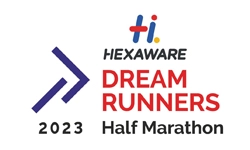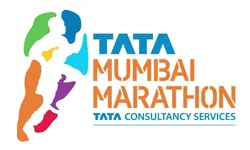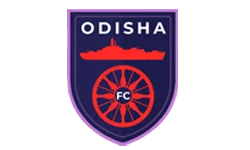Alcohol is a common social lubricant, enjoyed by many around the world. But what about its impact on our cardiovascular health? Can raising a toast come with a hidden risk of a heart attack?
Research suggests a complex relationship between alcohol consumption and heart disease. While moderate drinking might offer some benefits, excessive alcohol intake is undeniably linked to increased risks of various health problems, including heart attack (1).
In this blog post, we'll delve deeper into the science behind this connection and explore how much alcohol consumption might be considered too much when it comes to heart health. Also find out how alcohol affects the heart?
The impact of alcohol on your heart health hinges on the amount you consume. Here's a breakdown of the two key categories:
Moderate drinking is generally defined as one drink per day for women and two drinks per day for men. (Keep in mind, a drink can vary depending on the type of beverage – a standard drink typically contains about 0.6 fluid ounces or 14 grams of pure alcohol) (2).
Studies suggest moderate alcohol consumption might offer some potential cardiovascular benefits. It may increase HDL (good) cholesterol levels and reduce the risk of blood clots. However, it's important to remember that these potential benefits are relatively small and shouldn't be a reason to start drinking if you don't already (3).
Where things take a turn for the worse is with excessive alcohol intake. This is generally defined as exceeding the moderate limits mentioned earlier. Heavy drinking is a well-established risk factor for several alcohol induced diseases, including heart disease.
It can:
â— Raise blood pressure, a significant risk factor for heart attacks and strokes.
â— Damage heart muscle, weakening its ability to pump blood efficiently.
â— Increase harmful triglycerides, a type of fat in the blood that can contribute to artery blockage.
â— Disrupt heart rhythm, leading to irregular heartbeats.
While moderate alcohol consumption might have some debated benefits, exceeding those limits significantly increases the risk of heart disease and other health problems.
While a casual drink might not pose a major threat, exceeding the recommended limits turns alcohol into a significant risk factor for various heart-related conditions. Here's how excessive alcohol intake can negatively impact your cardiovascular health:
1. High Blood Pressure and Heart Attack: Does alcohol cause heart attack? Excessive alcohol consumption is a well-known culprit for raising blood pressure, a major contributor to heart attacks and strokes. Alcohol can interfere with the kidneys' ability to regulate blood pressure by causing them to retain sodium and water. Chronically high blood pressure weakens and damages blood vessels, making them more susceptible to blockage and ultimately increasing the risk of a heart attack.
2. Weakened Heart Muscle (Cardiomyopathy): Alcohol acts as a toxin to the heart muscle, weakening its ability to pump blood efficiently. Over time, this excessive strain can lead to a condition called cardiomyopathy. Symptoms of cardiomyopathy can include shortness of breath, fatigue, and even chest pain after drinking alcohol.
3. Arrhythmias (Irregular Heartbeats): Alcohol can disrupt the electrical signals that coordinate your heartbeat. This can lead to arrhythmias, or irregular heartbeats, which can be dangerous and even life-threatening.
4. Increased Triglycerides and Blocked Arteries: Excessive alcohol intake can elevate levels of triglycerides, a type of fat in the blood. High triglyceride levels, along with high cholesterol, contribute to the buildup of plaque in arteries. This plaque buildup narrows the arteries, restricting blood flow to the heart and increasing the risk of a heart attack.
While we might not feel the immediate effects, excessive alcohol consumption wreaks havoc on the heart through various mechanisms. Here's a closer look at how alcohol directly impacts your heart health, along with how it contributes to risk factors for a heart attack.
â— High Cholesterol: While not directly impacting good cholesterol (HDL), heavy drinking can increase bad cholesterol (LDL) and triglycerides, another type of blood fat that contributes to plaque buildup in arteries.
â— Obesity: Excessive alcohol consumption can contribute to weight gain, another significant risk factor for heart disease.
â— Diabetes: Heavy alcohol intake can impair the body's ability to regulate blood sugar, increasing the risk of developing type 2 diabetes, which itself is a risk factor for alcohol and heart disease (4).
While a casual drink might not be a threat, excessive alcohol intake is a well-established risk factor for heart disease
The good news? You're in control. Limit your alcohol intake, or avoid it altogether if you have pre-existing heart conditions. Prioritize water, a balanced diet, and exercise to keep your heart happy and strong.
FAQs
1. How much alcohol can cause a heart attack?
Excessive alcohol consumption increases the risk of heart attack. Drink in moderation to prevent heart disease. The exact quantity might vary from person to person, as it depends on many more factors.
2. What are the 4 signs of alcoholic cardiomyopathy?
The four signs of alcoholic cardiomyopathy include:
â— Shortness of breath
â— Fatigue
â— Swelling in the legs and feet
â— Irregular heartbeat.
3. What happens to your heart when you drink alcohol?
When you drink alcohol, it affects the heart by:
â— Increasing heart rate and blood pressure temporarily.
â— Weakening heart muscle over time with excessive consumption.
â— Contributing to the development of conditions like cardiomyopathy and arrhythmias.
â— Raising the risk of heart disease and stroke with chronic heavy drinking.
4. Should you drink alcohol after a heart attack?
It's generally advised to avoid alcohol after a heart attack, especially if you have alcohol-induced diseases. Drinking alcohol can exacerbate heart conditions and increase the risk of further complications. It's essential to consult with a healthcare provider for personalized guidance based on your specific health status and medical history.
5. Why does alcohol weaken the heart?
Alcohol weakens the heart primarily due to its impact on alcohol-induced diseases. Excessive alcohol consumption can lead to conditions such as alcoholic cardiomyopathy, where the heart muscle becomes weakened and unable to pump blood effectively.
Alcohol can contribute to high blood pressure, irregular heart rhythms, and other cardiovascular issues, further weakening the heart over time. It's essential to limit alcohol intake to reduce the risk of alcohol-induced heart diseases and maintain heart health.














